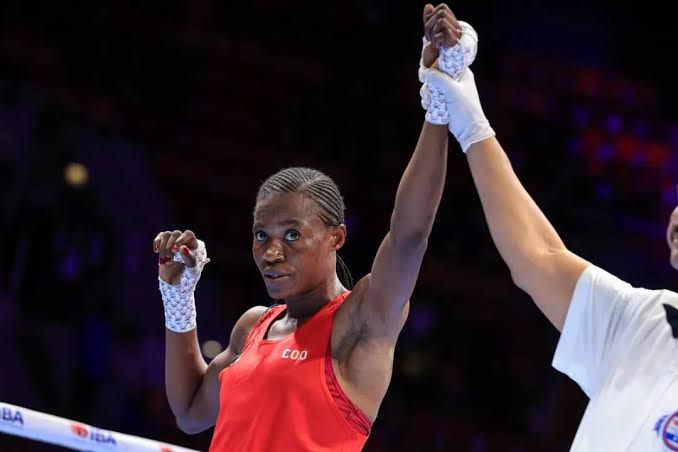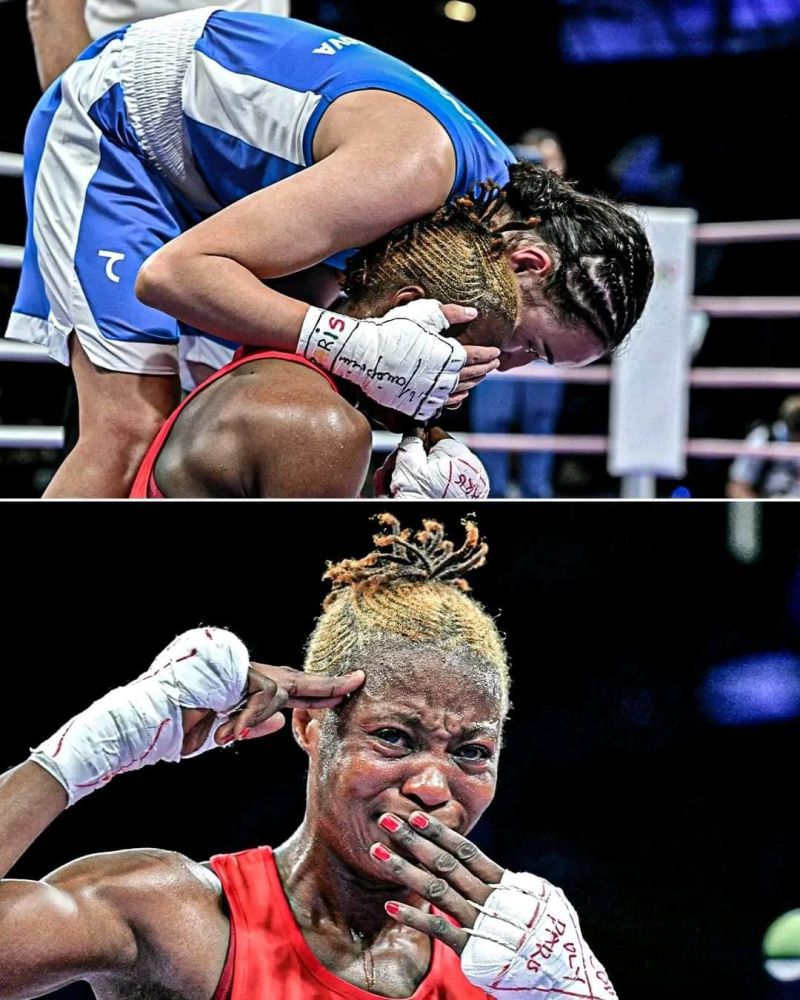At the 2024 Paris Olympics, Congolese boxer Marcelat Sakobi made headlines not for her defeat in the ring but for a powerful gesture of activism. After her match, she placed her hand in front of her mouth and mimicked a gun with two fingers pointed at her temple. This poignant action, a symbolic representation of the violence plaguing her home country, the Democratic Republic of Congo (DRC), spoke volumes about the silence of the international community regarding the ongoing atrocities there.
A Silent Cry Amid Mass Violence
The Democratic Republic of Congo is grappling with one of the deadliest conflicts in the world today. The eastern regions, particularly North Kivu and Ituri provinces, have been the epicenter of violence for decades, mainly due to the presence of various armed groups like the M23 militia. These groups, often backed by foreign powers, have waged relentless war on the civilian population, resulting in thousands of deaths, rapes, and large-scale displacement.
“..….the Second Congo War is widely considered the deadliest in human history since World War II…..”
The M23 rebels, with alleged support from the Rwandan military, have been responsible for widespread atrocities, including unlawful killings and sexual violence. Civilians in eastern Congo live under constant threat from these groups, which target women and children in brutal attacks. In one tragic account, a woman fleeing violence was raped in front of her children, while her mother was killed for resisting the attackers. These horrors have contributed to the displacement of over a million people and created a humanitarian disaster that the world has largely ignored.

The Symbolism Behind Sakobi’s Gesture
Sakobi’s silent protest was not an isolated act. Congolese footballer Cédric Bakambu made a similar gesture during the African Cup of Nations earlier in the year, using the global stage to bring attention to Congo’s suffering. The gesture—two fingers to the temple—symbolizes the countless lives lost in a conflict largely ignored by the international media. Sakobi and Bakambu are part of a growing movement of athletes using their platforms to highlight injustices in their home countries.
The conflicts in the DRC have a complex history rooted in ethnic tensions, political instability, and foreign intervention. Armed groups like M23 and others, such as the Democratic Forces for the Liberation of Rwanda (FDLR), often exploit these tensions, engaging in violence for control over the region’s rich mineral resources. Despite international condemnations, the cycle of violence persists, exacerbated by the lack of effective governance and the involvement of neighboring countries like Rwanda and Uganda.
Athletes as Advocates: The Power of Sports in Activism
Sakobi’s gesture reignites the conversation about the role of athletes in activism. Historically, sports have been a platform for political and social statements, and Sakobi’s actions demonstrate how athletes can bring attention to crises that might otherwise go unnoticed. By standing up for her people on the world stage, Sakobi joins the ranks of other sports figures who have used their fame to spark global dialogue on critical issues.

Her protest has drawn attention from human rights organizations and activists who are calling for stronger international action to address the crisis in Congo. Social media has also amplified Sakobi’s message, with many sharing her gesture and demanding a response from the global community The Ancestral News.
The Global Call for Action
The violence in the DRC has been an ongoing humanitarian catastrophe. The region’s vast mineral wealth, including gold and coltan (essential for electronics), has made it a battleground for various militias, often supported by foreign interests. The result has been decades of bloodshed, with little progress toward peace. Human rights organizations, including Human Rights Watch, have called for stronger international intervention, including sanctions on leaders supporting the violence and increased humanitarian aid to the millions of displaced and traumatized civilians.
However, global response remains tepid. Despite the scale of the violence, the crisis in Congo has not garnered the same level of international attention as conflicts in other parts of the world. Marcelat Sakobi’s protest, and those of other Congolese athletes, is a critical reminder that the people of Congo are not forgotten—even if the world seems reluctant to act.
Conclusion: A Fight Beyond the Ring
Marcelat Sakobi may have lost her Olympic match, but her battle for justice and peace in her homeland continues. Her gesture, powerful in its simplicity, calls on the world to pay attention to the ongoing suffering in the DRC. As athletes like Sakobi and Bakambu raise awareness, the hope remains that their efforts will lead to greater international engagement and, ultimately, a resolution to one of the most brutal conflicts in modern history.
The people of Congo are crying out for help, and through the courage of individuals like Marcelat Sakobi, their voices are starting to be heard.
Sources:
